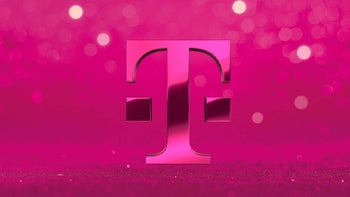WSJ story on CDMA iPhone captures attention of Wall Street traders

Although rumors of a CDMA version of the iPhone has been spread before, the fact that this time the story was started by a Wall Street Journal story seems to have led some gravity to it. And nothing gets Wall Street traders running for their "Buy" tickets more than a good story in the Journal. The possibliity of a CDMA iPhone model was the top story on Wall Street on Tuesday. Among the most obviously affected firms is Verizon Wireless. Verizon uses the CDMA technology, and with the largest footprint for 3G coverage in the U.S. along with what many consider the best 3G service in the country, Big Red should certainly benefit by offering an iPhone. For years, Verizon customers have been asking for the iPhone and it has only been recently with the launch of the Android powered Motorola DROID, that the carrier has had a unit to sell that is comparable to the Apple handset. The stock rose over 2.5% on Tuesday to 31.23 as a result of the story.
Another big winner would be Apple itself. While limiting itself to AT&T's network since the launch of the phone, Apple has had to spend time defending AT&T's spotty coverage and dropped calls. By expanding its sales channels to other carrier's, it can only lead to more iPhones in people's hands. And even those who now own the device will have to buy a CDMA model if they want to switch to Verizon. Apple's stock made an all-time high at 237.48 before closing up 1.5% at 235.85. Besides Verizon, Sprint is another CDMA carrier that could benefit from the new model. Sprint shares rose to 3.82 for a gain of 3 cents. Chip maker Qualcomm could make more money from a CDMA iPhone and from another rumored model mentioned in the WSJ article that would use a faster processor. Qualcomm's 1GHz Snapdragon processor has been the chip of choice for newer, high powered cellphones. The stock gained .9% to 42.13.
The one big loser in the scenario? AT&T. Yes, losing some customers might take some of the pressure off its overworked pipelines. But AT&T used its exclusive period with the iPhone to make a strong association with the phone. When you thought of the iPhone, you thought of AT&T, which lost 2.11% to 25.95. Without the exclusive iPhone deal, AT&T will have to challenge Verizon and the other carriers through its network and its cellphone lineup. In both of those departments, AT&T comes up short against Big Red and some of the other carriers.
source: YahooFinance
Another big winner would be Apple itself. While limiting itself to AT&T's network since the launch of the phone, Apple has had to spend time defending AT&T's spotty coverage and dropped calls. By expanding its sales channels to other carrier's, it can only lead to more iPhones in people's hands. And even those who now own the device will have to buy a CDMA model if they want to switch to Verizon. Apple's stock made an all-time high at 237.48 before closing up 1.5% at 235.85. Besides Verizon, Sprint is another CDMA carrier that could benefit from the new model. Sprint shares rose to 3.82 for a gain of 3 cents. Chip maker Qualcomm could make more money from a CDMA iPhone and from another rumored model mentioned in the WSJ article that would use a faster processor. Qualcomm's 1GHz Snapdragon processor has been the chip of choice for newer, high powered cellphones. The stock gained .9% to 42.13.
The one big loser in the scenario? AT&T. Yes, losing some customers might take some of the pressure off its overworked pipelines. But AT&T used its exclusive period with the iPhone to make a strong association with the phone. When you thought of the iPhone, you thought of AT&T, which lost 2.11% to 25.95. Without the exclusive iPhone deal, AT&T will have to challenge Verizon and the other carriers through its network and its cellphone lineup. In both of those departments, AT&T comes up short against Big Red and some of the other carriers.
source: YahooFinance










Things that are NOT allowed: